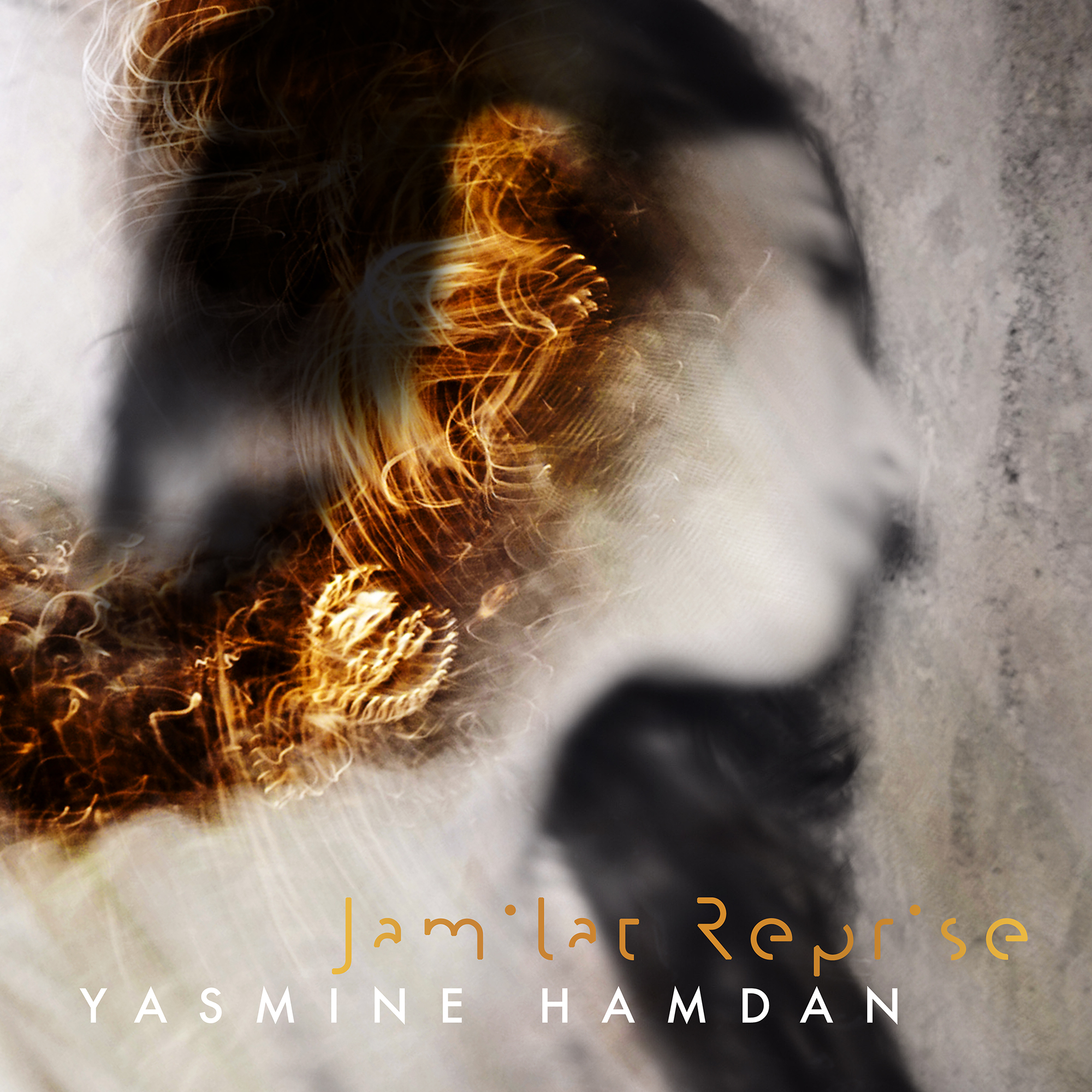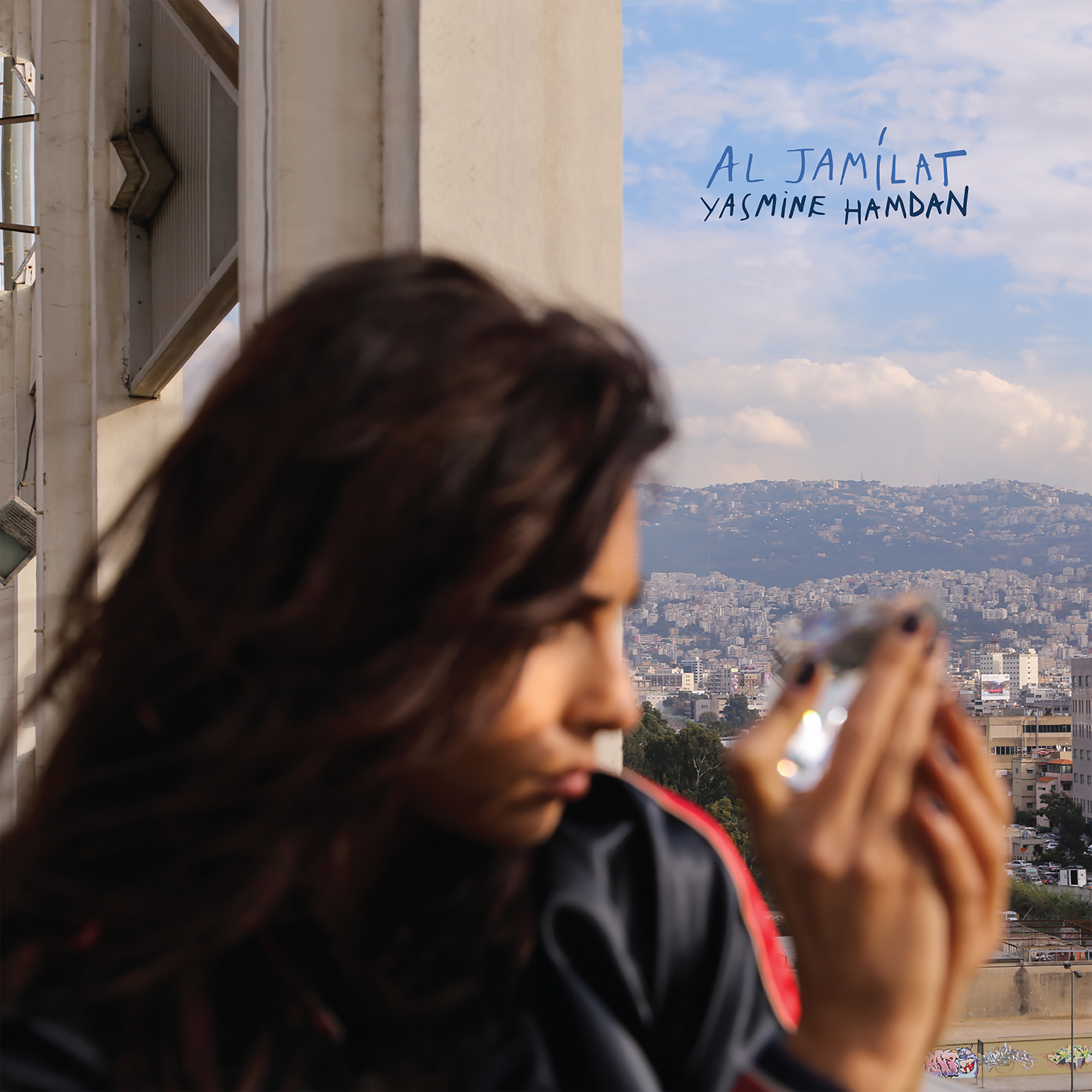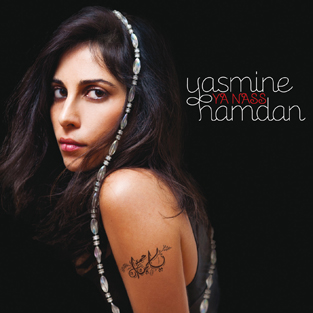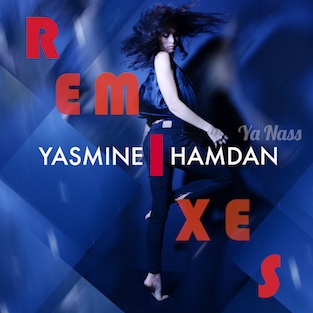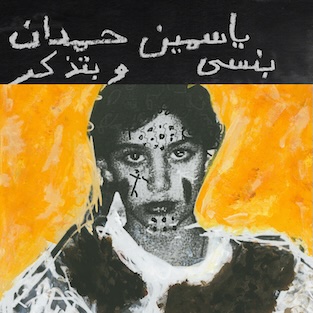
Memory is the most extraordinary force. It shapes, and perpetually remixes, our sense of self and surroundings. It is somehow both elusive and irresistibly persistent. On I Remember I Forget, the eagerly anticipated third album from Beirut-born, Paris-based singer-songwriter and producer Yasmine Hamdan, this force is ever present and always transforming.
I Remember I Forget follows Hamdan’s internationally acclaimed 2013 solo debut Ya Nass (Hey People) and 2017’s Al Jamilat (The Beautiful Ones). It further seals her reputation as an evocative storyteller, a captivating performer, and an independent trailblazer. As a multilingual artist, her music has always interlaced the personal, the poetic and the political, often carried with lively humour, and drawing from worldwide and pan-Arabic influences and dialects. All of these qualities feel intensified on this latest album. These are songs of beauty and righteous fury, forged within a maelstrom of global crises: the 2020 Port of Beirut explosion; the economic collapse in Lebanon – a financial disaster which protected the elite at the expense of countless ordinary people. In an increasingly fractured modern world, Hamdan’s expressions sound more vital than ever.
“For this record, I needed to ground myself in a specific place – and it had to be Lebanon,” explains Hamdan. “My connection to Lebanon, and what has happened to it, constituted the grounds from where I started writing and composing the album. However, gradually in the creative process, this place became a symbol, a metaphor, a catharsis for what is happening globally, and being experienced universally.”
“Despite the pain and charged emotions I felt at witnessing what was happening to my birthplace, these feelings were surmounted by a sense of tenderness and familiarity that induced hope and inspiration. By all means, Beirut kept being generous to me,” she recalls. She began to focus intently on songwriting, also reconvening with her longtime collaborator, Marc Collin (Nouvelle Vague). I Remember I Forget is produced under the aegis of their respective labels, Hamdanistan and Kwaidan, and released on Crammed Discs/[PIAS].
“Right after the Beirut blast, I spent some time in Sicily,” she adds. “I was surrounded by astounding nature all around me, which brought about a sense of reflection and meditation. I started working on new demos. I needed to experiment and go to the edge of things, and the collaboration with Marc was both grounding and very free: a quality reflected in the balance and harmony of the album.”
From the broodingly soulful atmospheres of the opening track and first single release “Hon” (meaning “Here”), we are placed in the visceral present, and a simultaneously shifting, uncertain time. Hamdan collaborated here with the Palestinian poet Anas Alaili, and her lyrics are characteristically lucid yet also startlingly heartfelt. It is a digital-age diaspora perspective, relatable on a massive scale, while attuned to “a tiny land with a gaping wound”.
“’Hon’ was the first track I wrote for this record,” she says. “I wanted to express this very difficult place where you live in two temporalities: ‘here’ and ‘there’ – where your loved ones are in a vulnerable state exposed to violence. Feeling their vulnerability coupled with your own sense of helplessness, this violence is ultimately transported into your own soul. Your body keeps score, even if you’re watching at a distance.
“Unable to dissociate between ‘here’ and ‘there’, by metaphor, the lyrics of ‘Hon’ are about a murder scene taking place within the walls of my bedroom.”
The album’s cover artwork features a beautifully wry girlhood photo of Hamdan, originally taken by her father; elsewhere, for the cover of the single ‘Hon’, there is a hazy Beirut landscape, snapped by one of her sisters. “Before, I would feel homesick and be attached to concrete things,” she says. “Now, you have to tap into your blurry imagination.”
While the themes on I Remember I Forget are undeniably deep, Hamdan is brilliantly unconstrained in her influences and instrumentation throughout the track-listing, including using sample and loop techniques to “customise” traditional elements such as oud and darbuka percussion. This DIY approach is also reminiscent of her indie roots, as one half of ground-breaking Beirut band Soapkills “I had the desire to invite more Arabic sounds or textures into my music,” she says. “So, I had to find this meeting place of different instruments, textures and sonorities: this place that resembles me.”
The mesmerizingly catchy melody and intricate wordplay of “Shmaali” merges electronic production and Palestinian folk tradition. Specifically, it draws from “tarweeda” encoded songs, which date from the Ottoman Empire and beyond. Living under occupation, Palestinian women would sing to their loved ones, using encrypted verse that was undecipherable for the jailers. “I was inspired by the idea of a secret language, and of defying the jailers with tenderness,” says Hamdan. “I had so much pleasure constructing an all-women chorus to echo the women’s poetic defiance and bring it into the present.”
“Shadia” brings beguiling tonal shifts and surprising playfulness; this sweetly woozy melody takes inspiration from Sudanese Nubian music, and is incidentally named after Hamdan’s cherished Persian cat (“Animals are the most tender and beautiful things,” she beams). Its lyrics (“on the bed, embrace me”) also pay homage to the iconic Tunisian singer Habiba Msika, who was tragically murdered by an obsessive lover. “In this song, the character yearns to be cuddled with warmth and lightness,” she explains. “I named the song after my cat, because in times of wanting comforting, Shadia always answers the call!”
Hamdan collaborated with the Syrian composer Omar Harb for “The Beautiful Losers”: an opus response to a nation’s ruin. The lyrics are shattering, yet the melancholy is served with indefatigable wit and vivacity: “How does hope surrender/ How does it come back/ We, the beautiful losers, hang on”. Hamdan is backed here by a chorus of her relatives, and it was her father’s resilience that encouraged her to complete the song.
“I wrote this song because I believe that, despite all apparent struggles against injustice, there is always room for humour and hope,” she says. “This song is a tribute to the victorious beautiful losers.”
The title track of I Remember I Forget combines sleek strings with impulsive energy. “It puts a tonality to this album that is right for me,” she says. “It talks about selective memory and survival, and how we are expected to normalise a situation that is not normal or acceptable. Is it forgiveness when you forget – or when you remember?”
Hamdan has increasingly gravitated towards classical Arabic styles, though she remains unrestricted by convention. While staying in rural Sicily, she began learning the muwashah musical form (a poetic repertoire with 11th-century origins) that is the basis of “Mor” on this album. “I started developing the idea of a chorus that would completely take us somewhere else, creating a balance with the very Arabic-sounding melody: an open window, so that it breathes a bit,” she says.
“Abyss” bristles with a taut clubby rhythm and a love-hate dynamic, representing self-serving politicians, the possibility of change (with a nod to Lebanon’s 17 October Revolution of 2019), and thwarted promises. “This song is a satirical mockery of the political establishment in Lebanon,” she explains. On “Vows”, Hamdan evokes an archetypal “lamenting woman”: world-weary, yet determined to continue living, as she says: “This song was inspired by this image of a seated woman, grounded like the roots of a tree.”
“Daya3” develops from a dislocating 10/4 rhythm (“The piece centres on an obsessive mind, stuck in a loop of longing,” explains Hamdan) into an undulating groove, with references including James Blake’s early electronic serenades.
Finally, there is “Reminiscence”: an elegant, meditative track that calls to mind a South Asian raga, and yields a spirit-lifting end-note. As Hamdan says: “It’s a mystic hymn for the promise of a new dawn.” On I Remember I Forget, Yasmine Hamdan connects past, present and future – and creates a vision that stays with you.
Notes Arwa Haider 2024








